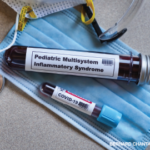 SINGAPORE—Almost five years after the onset of the COVID-19 pandemic, the reverberations of this global scourge continue to be felt across the world of medicine, including in the field of rheumatology.
SINGAPORE—Almost five years after the onset of the COVID-19 pandemic, the reverberations of this global scourge continue to be felt across the world of medicine, including in the field of rheumatology.
At the 26th Congress of the Asia Pacific League of Associations for Rheumatology (APLAR) in August 2024, Ernest Choy, MD, FRCP, head of rheumatology and translational research in the Division of Infection and Immunity and director of the Cardiff Regional Experimental Arthritis Treatment and Evaluation Centre at Cardiff University School of Medicine, Wales, U.K., delivered a talk titled, The Long-Term Impact of COVID Infections on Patients with Rheumatic Diseases. He described the current evidence regarding the persistent effects of infection with the SARS-CoV-2 virus.
Disease Variability
Dr. Choy began with a key lesson from the pandemic: Even when a single, clearly identifiable entity—in this case, the SARS-CoV-2 virus—is the cause of a disease, the spectrum of clinical phenotypes for that disease can vary widely. From mild, asymptomatic infections to severe, life-threatening COVID-19 cases, clinicians have observed a vast heterogeneity of outcomes across millions of patients.
Dr. Choy outlined the many factors that influence the course of disease for individuals. These variables include:
- Viral factors, such as the specific variant, the portal of entry into the body and the inoculation dose of the virus;
- Host factors, including genetic susceptibility to severe disease, immunocompromised status and frailty; and
- The absence or presence of irreversible tissue damage.
A study co-authored by Dr. Choy helps hammer home the importance of host factors with regard to the implications of COVID-19 infection. In this retrospective, population-based cohort study using linked, anonymized electronic health data from SAIL Databank in the U.K., researchers looked at more than 1,900 people with inflammatory arthritis and more than 160,000 people without inflammatory arthritis who tested positive for COVID-19. Post infection, significantly more people with inflammatory arthritis were hospitalized and the 28-day mortality rate was significantly higher in this group than the general population—24.4% vs. 16.9% for hospitalizations and 11.2% vs. 3.2% for mortality, respectively. However, the main drivers of increased mortality were medical co-morbidities and increased age among patients with inflammatory arthritis. After the study controlled for these confounders, the mortality rate was no longer different between individuals with and without inflammatory arthritis.1
Clinicians should be aware of the potential of worsened bone health in patients following COVID-19 infection.
Long-Term Complications
Next, Dr. Choy discussed the emergence of new clinical entities that may be linked to a patient’s prior COVID-19 infection.



